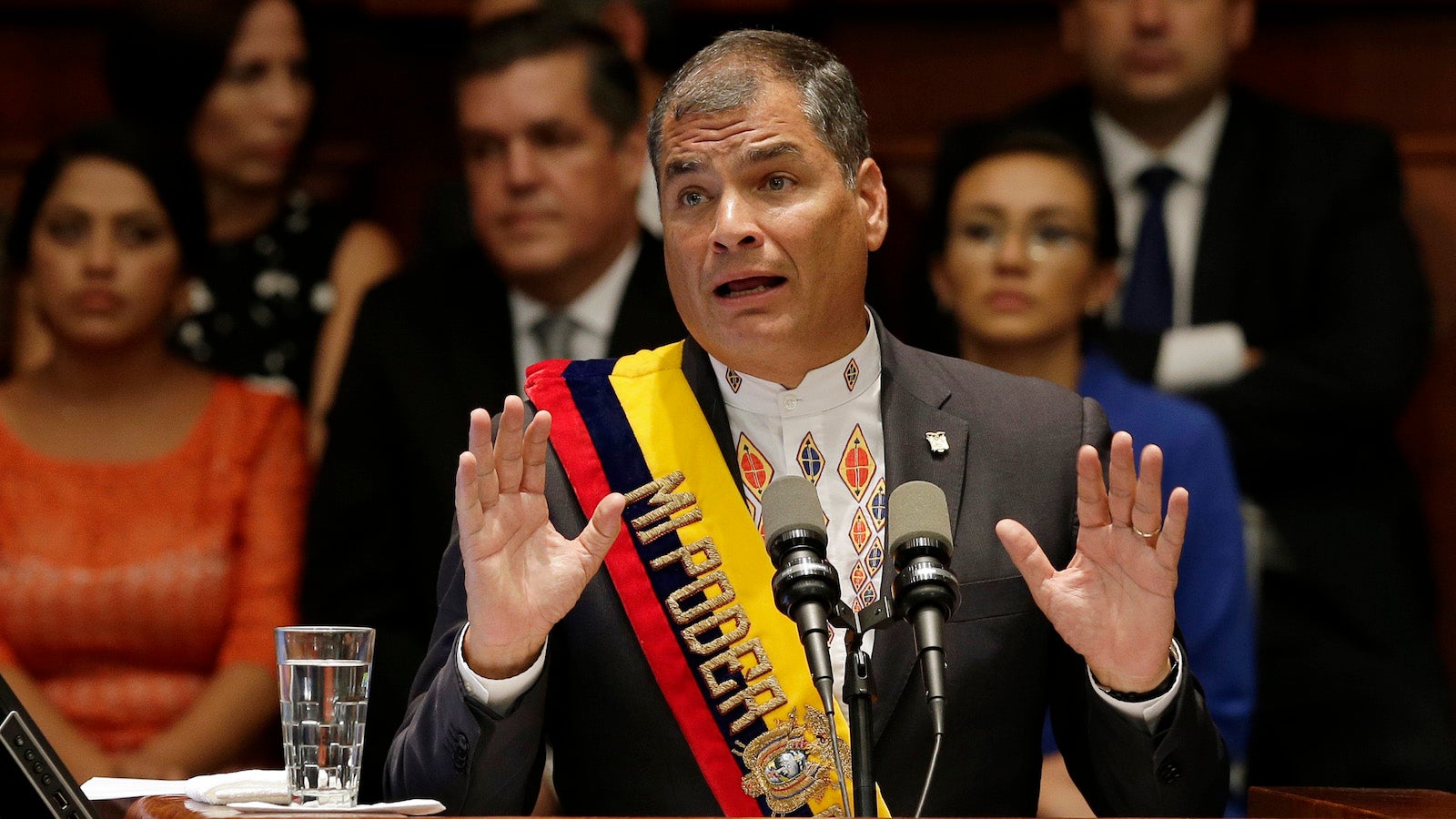In a country where dissent is silenced, activists use the president’s own voice to mock him
In Ecuador, where the voice of one man—president Rafael Correa—dominates, activists are reconstructing the leader’s own words to encourage people to speak freely.


In Ecuador, where the voice of one man—president Rafael Correa—dominates, activists are reconstructing the leader’s own words to encourage people to speak freely.
An online platform, called MashiMachine, mashes up clips of Correa’s speeches into video messages, which can then be shared on social media. Users can submit almost any Spanish phrase to the site, and then hear those words come out of the Ecuadorian president’s mouth—often creating incongruous hilarity.
In one of the most popular clips, Correa says, “Lunes impuestos martes impuestos miércoles impuestos jueves impuestos viernes impuestos y sábado insultos.” That translates in English to “Monday, taxes, Tuesday, taxes, Wednesday, taxes, Thursday, taxes, Friday, taxes, and Saturday, insults.” The last bit refers to his weekly broadcast.
MashiMachine pulls from the public library of the national communications secretariat, known as Secom, which has thousands of recordings of Correa saying more than 10,000 words. The videos are from the president’s Saturday TV broadcasts, known as ”sabatinas,” which are a major source of news for many people in the country. The weekly town halls, which can go on for hours, also help Correa maintain his popularity and push his agenda.
Some of the MashiMachine videos make him look silly, and others touch on hot-button issues. In one, he iconically praises journalists, who are censored in the country. And others are just plain funny, like this Daddy Yankee song parody.
Since launching on April 30, MashiMachine has churned out more than 140,000 videos and garnered more than 2.2 million page views. There’s a serious message behind the comedy, said Ecuadorian journalist and free-speech proponent Martin Pallares, since speech is one of the tools the president uses to assert his power.
“Correa has a monopoly on the word,” he said. “It’s very powerful to see people using this tool to make him say what people want him to say.”
The platform, created by the advertising agency Leo Burnett, Mexico, promotes 4 Pelagatos, an independent website founded in January by Pallares and a group of journalists who say they were fired from local news outlets for voicing their opinions about the Ecuadorian government. The name translates in English to ”four insignificant nobodies,” which Correa reportedly once called the journalists.
With the tool, “people, in a certain way, are destroying this image of Correa, the guy nobody can touch,” Pallares said. “You can make Correa a little toy.”
Communications is considered a public service in Ecuador. In 2013, the country passed a law that created an executive regulatory body—Secom—which oversees the media. It doles out fines and censors traditional media outlets. And Correa, who has led the country since 2007, has been known to crack down on journalists and publications that oppose him.
Even before the law, he targeted news organizations by claiming defamation. Members of the media, including journalists from one of the nation’s largest dailies and a prominent cartoonist, have been fined or imprisoned for defamation. And cash-strapped independent publications operate in fear of being sued or shut down.
So far, the Ecuadorian government has not been able to shutter 4 Pelagatos, because the communications law does not reach the digital space, Pallares said. He said that Secom has sent take-down notices to 4 Pelagatos and its US-based web host because the site uses videos and images of Correa. But the project is legal, according to US law, because the source videos are in the public domain, and don’t violate any copyrights.